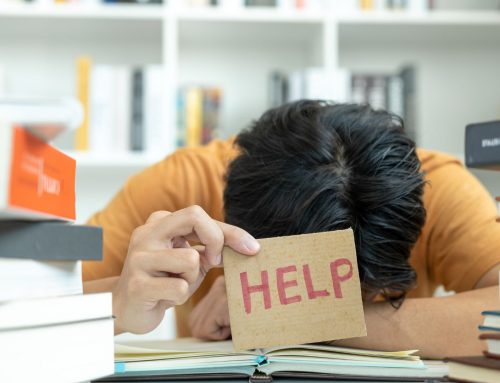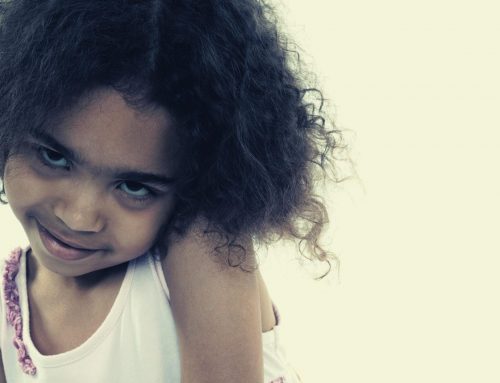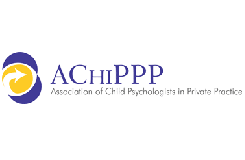Can children really suffer from depression?
The answer is yes. We support many children, teenagers and their families who are experiencing low mood or clinical depression. The symptoms of depression are often more difficult to spot in children than in adults, but it does exist and once diagnosed, is usually treated successfully.
Childhood depression is different from the everyday sad feelings that occur as a child develops. Just because a child seems sad does not necessarily mean he or she has significant depression or that treatment is required.
When the sadness is persistent, or if disruptive behaviour that interferes with normal social activities, interests, schoolwork, or family life develops, it may indicate that they are experiencing low mood or diagnosable depression.
How can I tell if my child is depressed?
The symptoms of depression in children vary. It is often undiagnosed and untreated because of the array of emotional and psychological changes that happen as a child grows up and faces new challenges. Children may appear angry or sad, and many escape into other activities such as computer games to mask their feelings of sadness and inadequacy.
Signs and symptoms of depression in children include:
- Irritability or anger.
- Continuous feelings of sadness, hopelessness.
- Social withdrawal.
- Increased sensitivity to rejection.
- Changes in appetite – either increased or decreased.
- Changes in sleep – sleeplessness or excessive sleep.
- Vocal outbursts or crying.
- Difficulty concentrating.
- Fatigue and low energy.
- Physical complaints (such as stomach-aches, headaches) that do not respond to treatment
- Reduced ability to function during events and activities at home or with friends, in school, extracurricular activities, and in other hobbies or interests.
- Feelings of worthlessness or guilt.
- Impaired thinking or concentration.
- Thoughts of death or suicide
Not all children with depression have all of these symptoms and having some of these symptoms does not necessarily mean that your child is depressed. In fact, most children and teenagers will display different symptoms at different times, and in different settings. Although some children may continue to function reasonably well in structured environments, most with significant depression will suffer a noticeable change in social activities, loss of interest in school and poor academic performance, and a reduction in confidence. Older children may also begin self harming or ‘self medicating’, experimenting with alcohol or drugs.
How is the diagnosis made?
If the symptoms of depression in your child have lasted for at least two weeks, you should make an appointment with your child’s GP to make sure there are no physical reasons for the symptoms, and to request that your child receives proper treatment. Following this, you may be referred to a psychologist for an assessment of your child’s mood and functioning. This assessment will involve meeting with you and your child and with your permission, and obtaining information from school should this be appropriate. This will help to determine whether your child is depressed or whether there may be other reasons for these symptoms.
What are the treatment options?
Treatment options for children with depression are similar to those for adults, including psychotherapy and medication. Psychologists will support you with how to cope with your child’s mood and difficulties, as well as offer one to one therapeutic support to your child. While this is often very effective in treating depression in children, antidepressant medicine might be considered as an additional option if there is no significant improvement.
Parenting and depression in children
There are many things that contribute to low mood in children. These include their stage of development, personality, self confidence, experiences, past trauma, social connections, attachment to others, and family life to name a few. As a parent, it is sometimes easier not to think about the possibility that your child may be depressed. You may put off seeking the help of a mental healthcare professional, and wait for the ‘phase that they are going through’ to end. However, If low mood is persistent, and you remain concerned, you do not need to try and manage this on your own.
The first step is to try and talk to your child about your concerns in a supportive and non-judgemental way. Ask them how you can help, and if they know why they are feeling this way. If they are not able to identify specific factors, let them know that you are there to support them and to help in any way you can. Also, explain that sometimes it is helpful to talk to someone objective, outside the family, who understands how to help. It is essential to convey that you understand that it is not deliberate and that you are not disappointed in them for feeling this way.
One of the things we might not want to discuss or acknowledge are when children or teenagers might express suicidal thoughts. Sometimes, depression can be so extreme that children might express a wish ‘not to be here anymore’ or wish they ‘didn’t have to wake up ever again’. This is often said in response to extreme anxiety or feeling overwhelmed, and is not necessarily a sign that your child is having suicidal thoughts. However, should your child express these thoughts, it would be a good idea to see your GP or mental health professional, who is better able to assess the risk.
Other signs of concerning behaviour in teenagers include:
- Depressive symptoms (changes in eating, sleeping, activities)
- Social isolation
- Talk of suicide, hopelessness, or helplessness
- Increased acting-out behaviours (sexual/behavioural)
- Increased risk-taking behaviours
- Frequent accidents
- Substance abuse
- Focus on morbid and negative themes
- Talk about death and dying
- Increased crying or reduced emotional expression
If these are persistent and intense, you may want to discuss your concerns with your child with a view to seeking support for them.
Can childhood depression go away without medical treatment?
Childhood low mood or depression tends to come and go in episodes. Children can have improved mood with the support of friends and family but in some instances, they may need more than what their direct support systems can offer. If you are concerned, visit your GP or contact an appropriate mental health professional.
Please see related article on when to seek professional help





